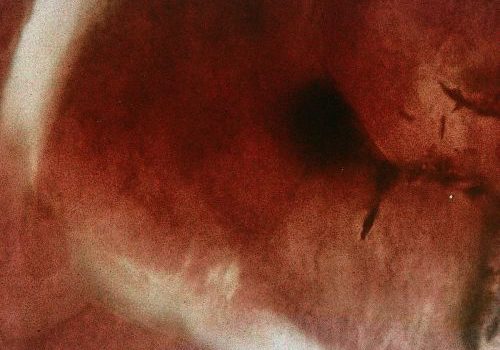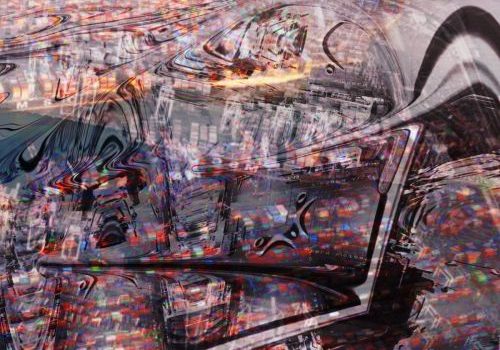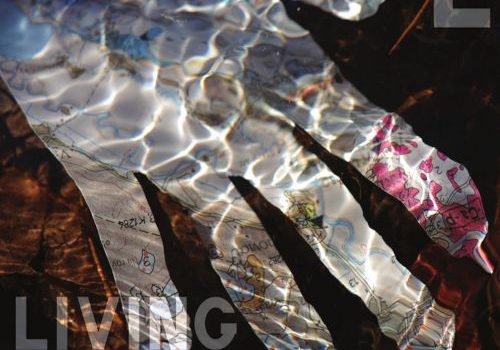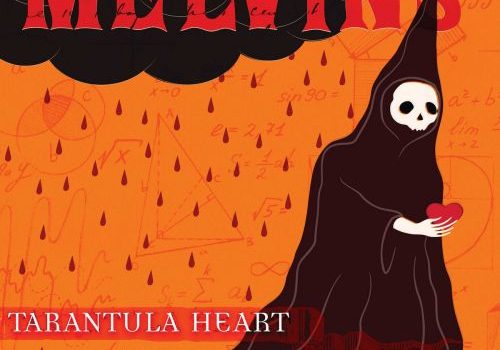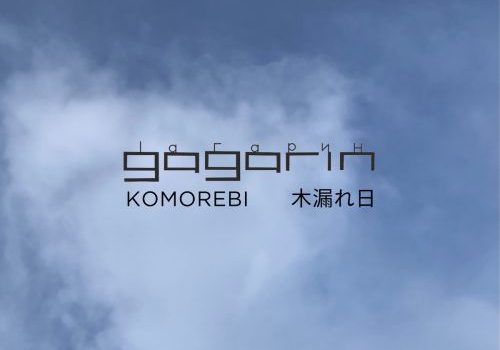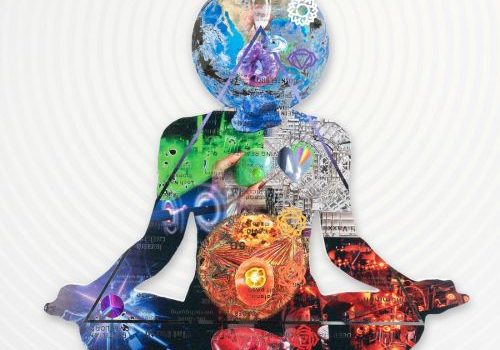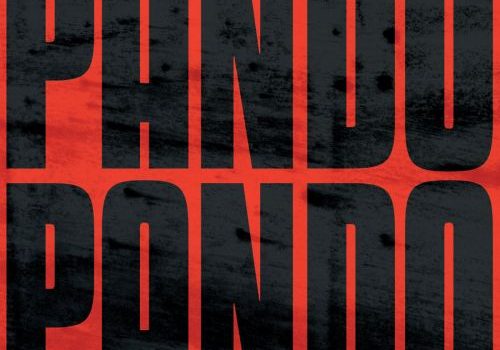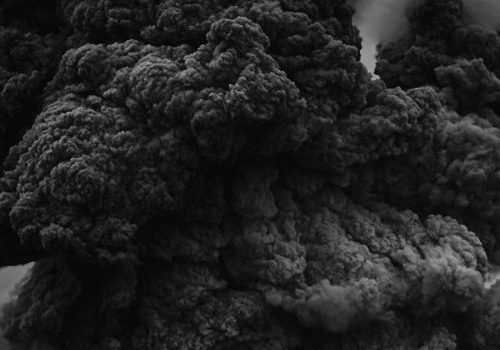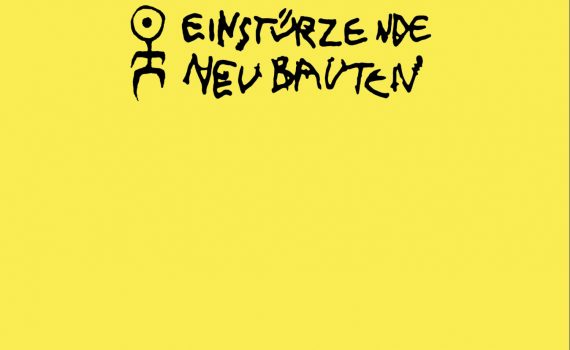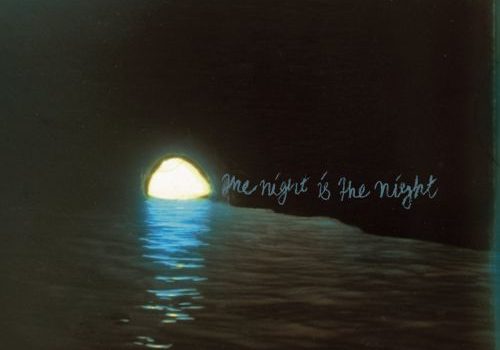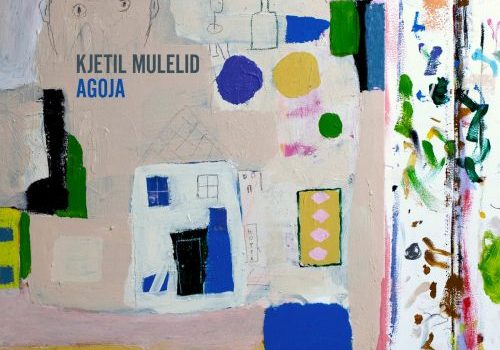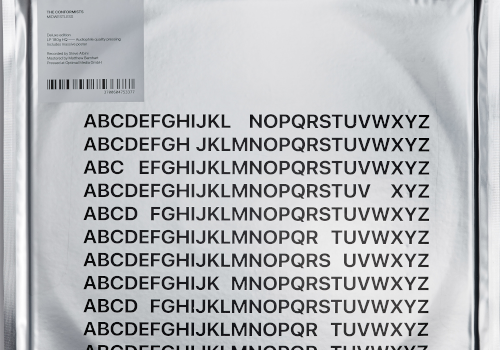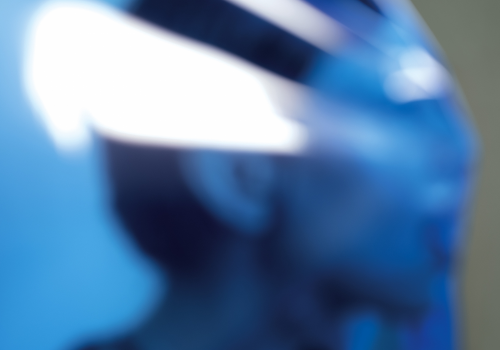Keeping his amorphous Angles group at a steady eight and enlisting a string quartet as well as Other Woman performer Elle-Kari Sander as vocalist, they have constructed a far-reaching and emotionally resonant suite that reflects a self-indulgent modern humanity.
Album review
What a IDM scuzzy-jazz-noise joy this is. A total fresh skewer on dance music where the ‘I’ is for injured and the dance bit is an interpretative crisp-bag of Ian Curtis-like scutterings. The fragmented energy spurring between Anthony Brown on upright bass and Aron Ward on assorted electronics and effects is a wonderful thing, slipping into the ill-fitting shoes of a host of worn-out genres to monkey-spanner some seriously unhinged magic.
Managing to do so much more with a guitar, bass, drums set-up, they push and pull in new directions, partly thanks to three very different songwriters and also due to the myriad of mysterious sounds wrestled from the guitar by Jason Sanford and his boxes of electronic trickery. It is a wild and at points uncomfortable ride, with three diverse vocalists stretching song structure into taut, complicated patterns, pummelling instruments and insinuating messages into eager ears.
This line-up of Elephant9 has been together for the best part of fifteen years now and although keyboard maestro Ståle Storløkken is the main songwriter and ideas person, the strength of the trio lies in its interplay and the flexibility of rhythm section Nikolai Hængsle and Torstein Lofthus. Although a little influenced by '70s prog, Ståle's variety of keyboards, including Hammond L100, Minimoog and Arp Pro and the forward-looking, constantly searching bass and drums puts this very much in a modern context.
For decades, and across an extensive discography, Six Organs Of Admittance / Ben Chasny have split the difference between delicate folk and brooding drone, usually by placing them next to each other in successive tracks. Along the way, Chasny has dipped into many musical currents, deploying middle eastern sounds, psychedelic builds, more and less extreme drones, gossamer vocals, and a long list of collaborators.
Not that Tarantula Heart is about forcing Philip Larkin to eat wasps either; but come on, if anyone was going to write an album about forcing Philip Larkin to eat wasps it'd probably be Buzz Osborne, who has lost none of his energy -- or his famous hair -- in the forty years since Melvins first decided to crank up the bass.
Having set up a new studio in Margate, the freedom and sounds of life by the sea have subtly insinuated themselves in to the pieces here which, along with the album celebrating the sixty-third anniversary of Yuri Gagarin being the first human in space, lends it a strange dichotomy between the weightlessness and movement of being in orbit and the freshness and positivity of time spent idling on the seafront.
A product of the ever-shifting sands of the group and hot on the heels of VHF’s Hypnotape comes this prime spoken word smothering from those sunburnt folks over at Three Lobed.
With two primary percussionists, you could be forgiven for thinking this s a journey into rhythm; but it is far more thought-provoking than that and the opener "The Ggraveyard Of Sharks", with its distorted blasts of debris and simmering radioactive warehouse vibe, is a dense, compulsive introduction. The percussion spills and bursts, drifting into almost silence and the sense of unknown and echoing mystery hangs heavy.
Discus It has been a couple of years since Carla Diratz‘s The Scale was released and you could be forgiven if the line-up for that album viewed it as a one-off; a unique meeting of post jazz rock minds. But when Carla contacted Martin Archer to suggest a more blues inflected album, suggestive of the current world malaise, both he and Nick Robinson jumped at the chance to […]
Fyear are a double drummer nine-piece with two spoken word performers which has chosen a suite of seven apocalyptic post-classical soundscapes to force across their message of human mistake, economic disarray and environmental disaster. The sound generated by the group and the thoughts expressed make them a perfect fit on Constellation, sharing recording venue Hotel 2 Tango with many of the label's other artists and a desire to raise consciousness in a new and unique way.
For Maridalen's third album, although the line-up of Jonas Vemøy, Anders Hefre and Andreas Haga remains the same, the venue has changed and instead of the self-referencing village church, they have decamped even further from civilisation to the island of Gressholmen, a boat ride from Oslo, which according to the lovely photographs is an apparently partly abandoned area redolent of the past.
Each subsequent album teetering between this rough'n'smooth threshold, the best a balancing act between and this latest sparsely packaged artefact, revisiting that Zickzack spidery black text and that ever-present dancing primitive swamped here by an acidic yellow, harbours some seriously lovely junkyard / alt-pop moments.
There is an intensity to the delivery especially when set against the stark tones of solo piano, the English words of the self-titled opener dancing into German as Katt Hernandez's lazy violin curls around the piano like smoke. These shards of violin that are spread throughout the album work as threads that draw the stories along, a serrated light into which the voice stares longingly.
For the first album under his own name, a more fluid group of musicians has gathered to flesh out musical expressions that have been approached in a way that highlights the melody and rhythm, but also allows plenty of room for extemporisation. The other lovely thing about the album is that, although it is born of Kjetil's ideas, he leaves acres of space for his guests often moving into the background to allow the likes of Arve Henriksen, Martin Myhre Olsen and Signe Emmeluth to step forward and lead the way.
Computer Students The Conformists have been toiling away in the St Louis hinterlands for nearly thirty years, crafting their awkward, distended “ugly rock music” and stretching it into new shapes, imbuing them with fresh perspectives and leading us away from leaden cruelty to a hypnotic, distorted romanticism that drags new blood and new earth from the cycle of days and seasons. Those arbiters of unusual time signatures Computer […]
Considering their current roster, Constellation is the perfect fit for this series of tracks that explore the interaction between electronics and voice in a completely unhindered and boundaryless fashion. Having spent time in groups and working on the edges of experimentation, this album focuses primarily on what Erika can achieve and how far she can push her voice within the song format.
I think of all the Velvet Underground effluvia this is the record I come back to most. I still massively rate Lou Reed as a songwriter but Nico is sheer vibes, like a cliff-face. From one angle she's massively unaffected -- the thin voice, that querulous vibrato. The proper folk singer approach of singing the notes largely undecorated. Nothing clever in her singing.
